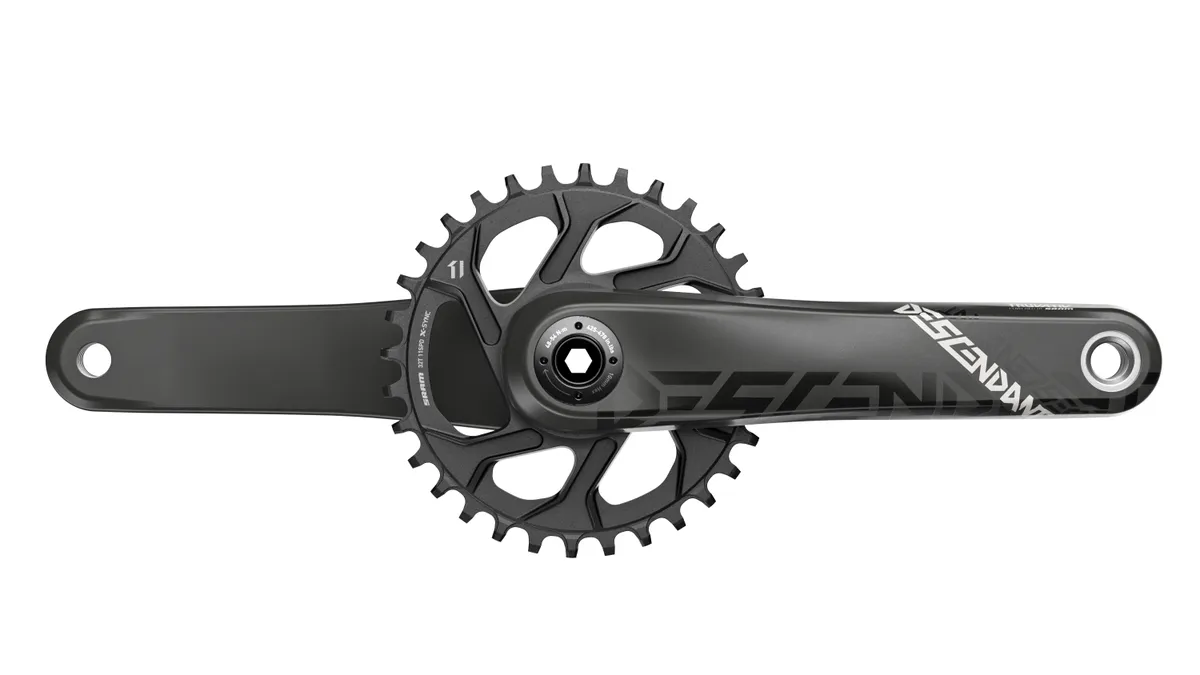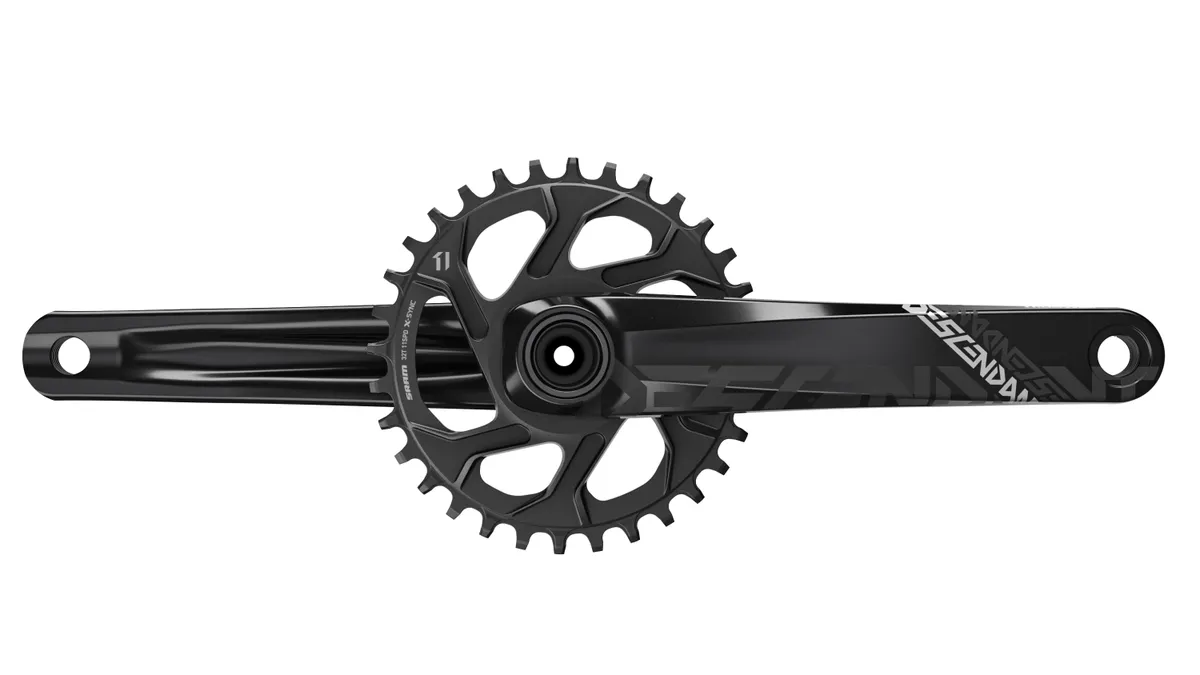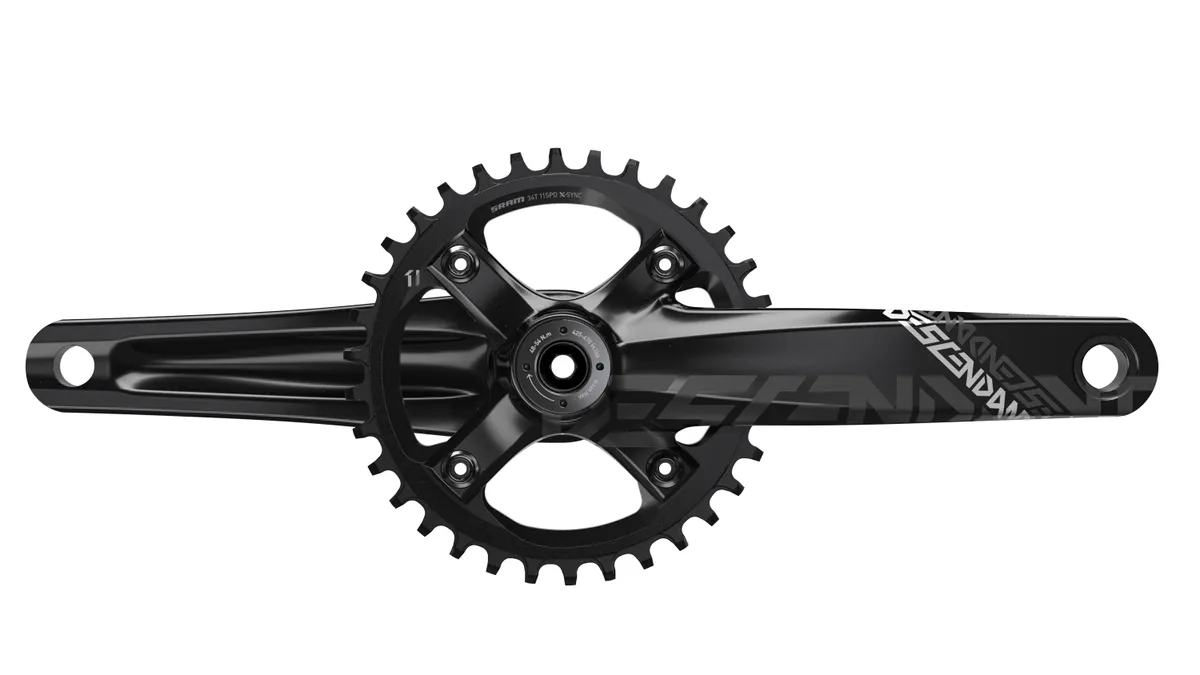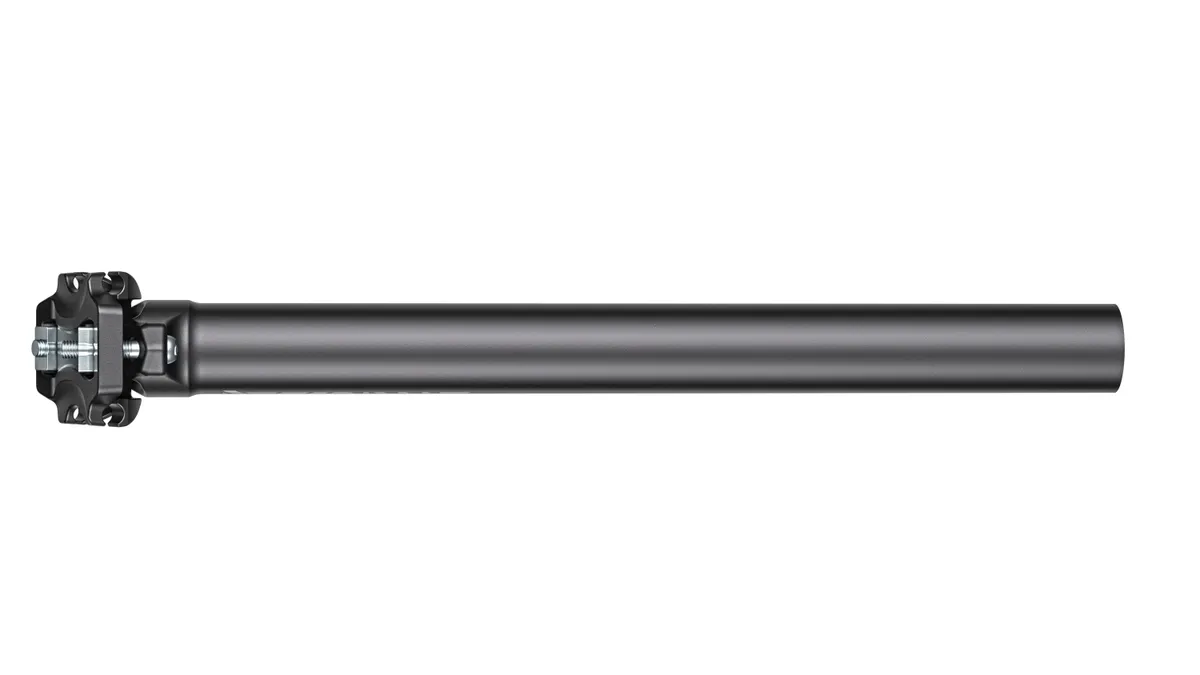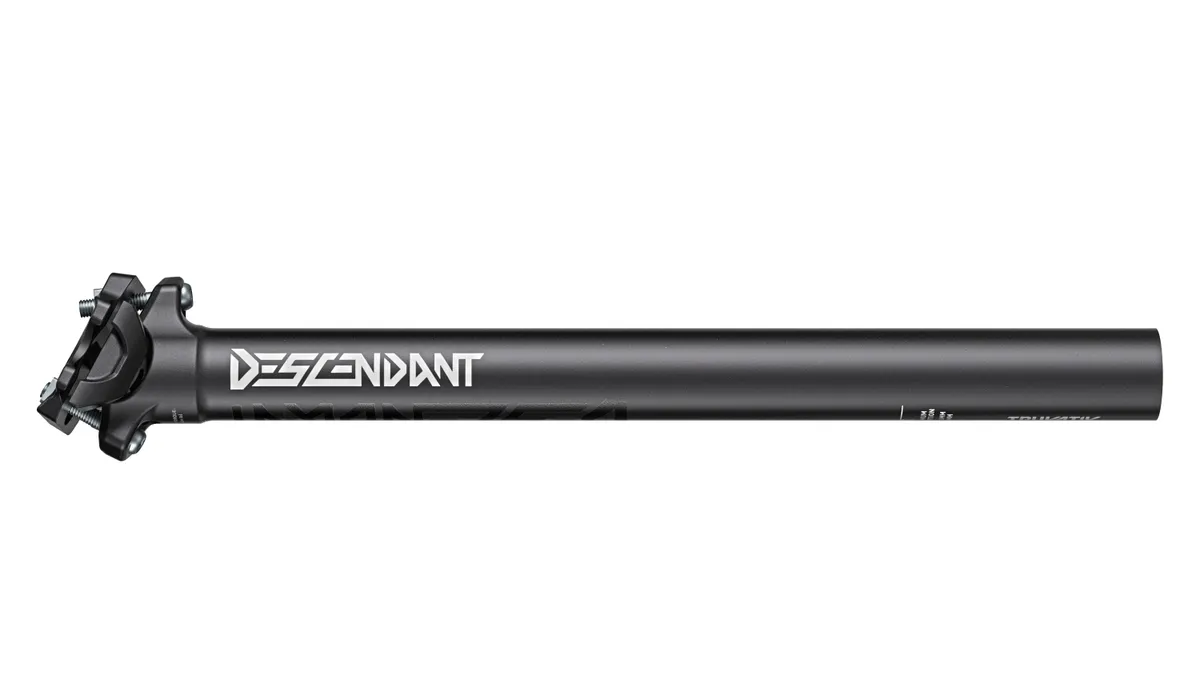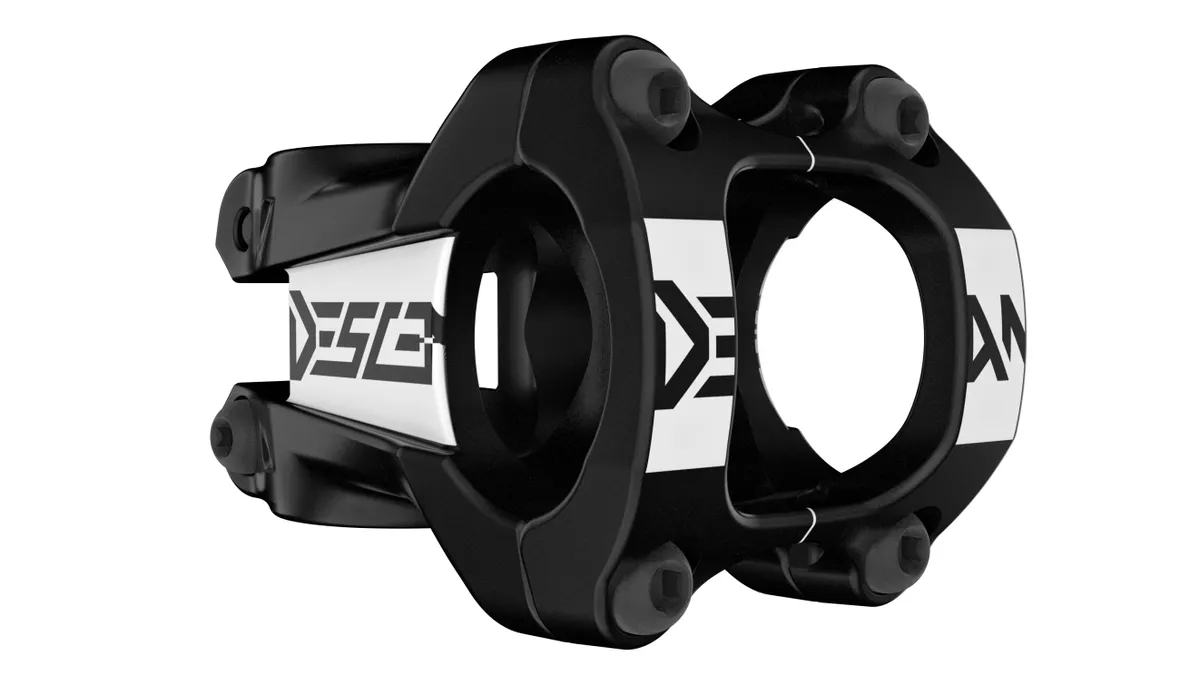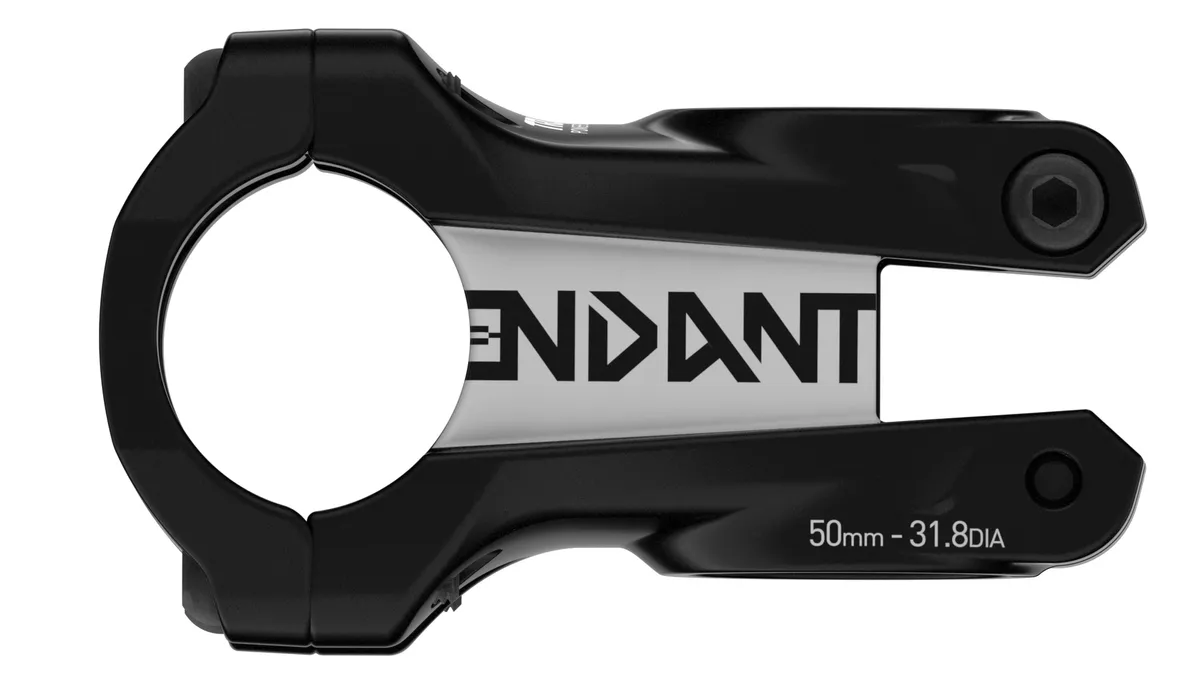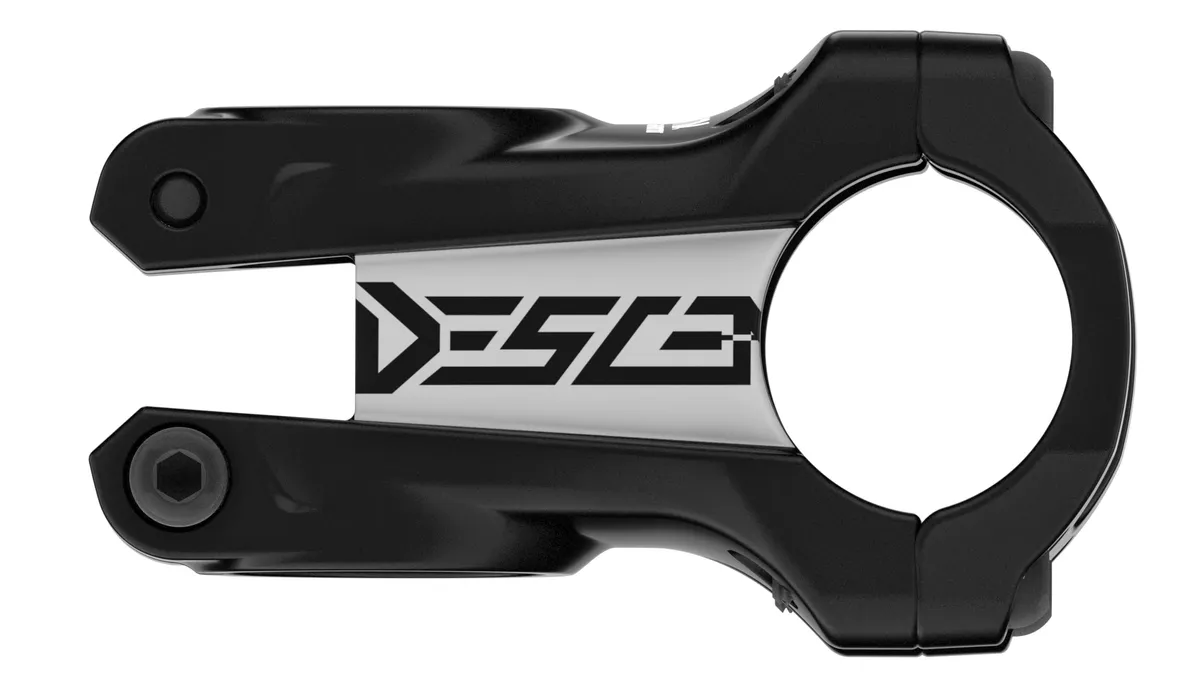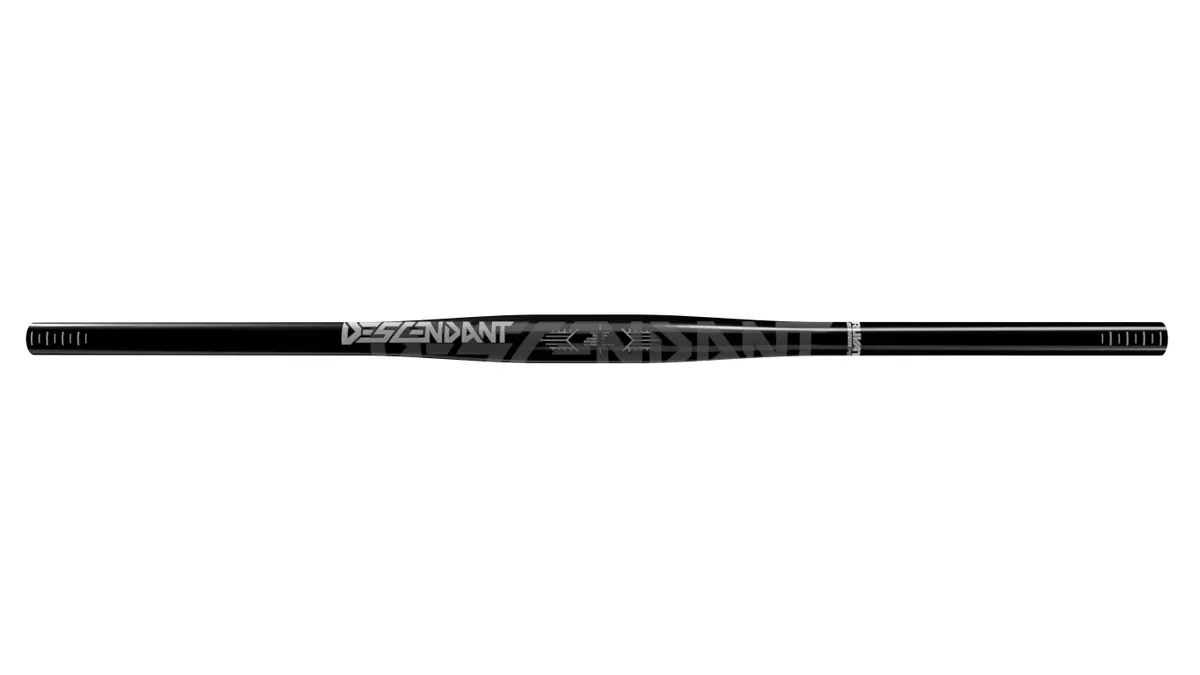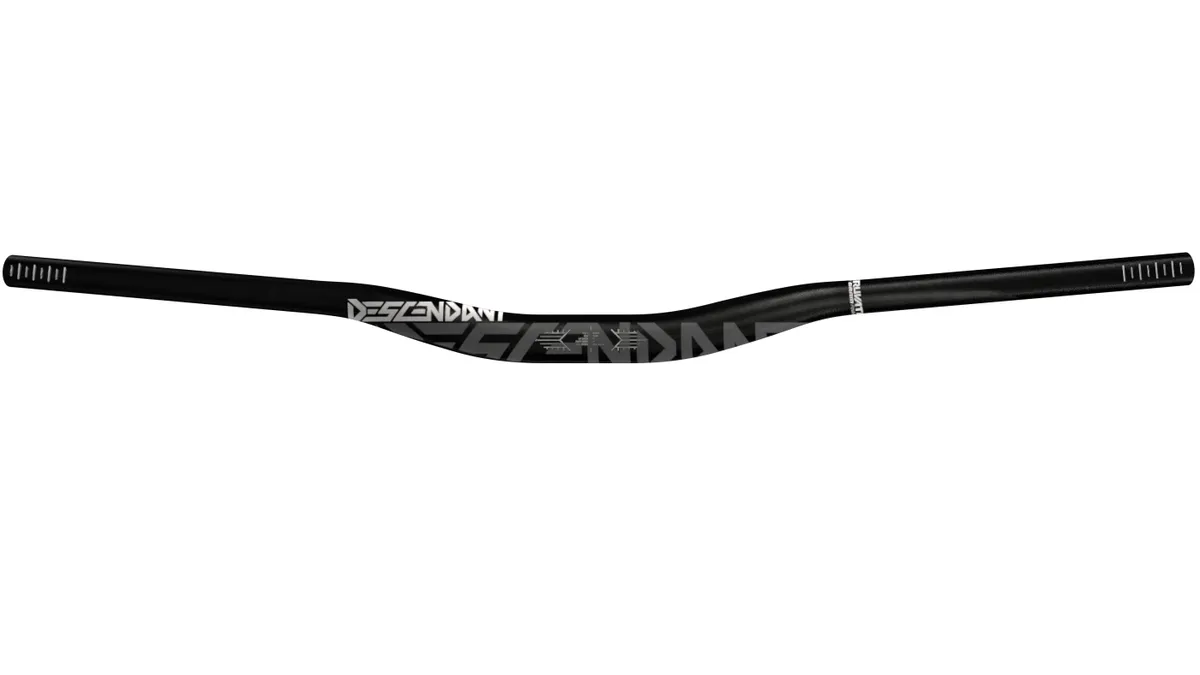While SRAM's drivetrains and suspension units often hog the limelight, it's easy to forget that finishing kit has always been a big part of what it does under the Truvativ sub-brand. With its all-new Descendant range of stems, bars, cranks and seatposts, Truvativ is updating its ageing range in order to make themselves attractive to the ever increasing trail, enduro and downhill markets with both carbon and alloy options on offer.
Truvativ started out making cranksets known for their durability in an era where ruining square-taper cranks was a common occurrence for riders that liked to push their limits on downhills or dirt jumps. It brought new technology and new materials to the arena, using a combination of warm forging and high strength aluminium alloys to provide durable kit without breaking the bank.
The new range follows in those footsteps, aiming to provide the biggest bang for your buck. The utilitarian function is backed up by the styling – you can have anything you like, as long as it's black. Combined with aggressive pricing, the new range looks likely to be a hit with brands looking to spec their bikes or aftermarket buyers focused on function rather than form.
Descendant crankset range
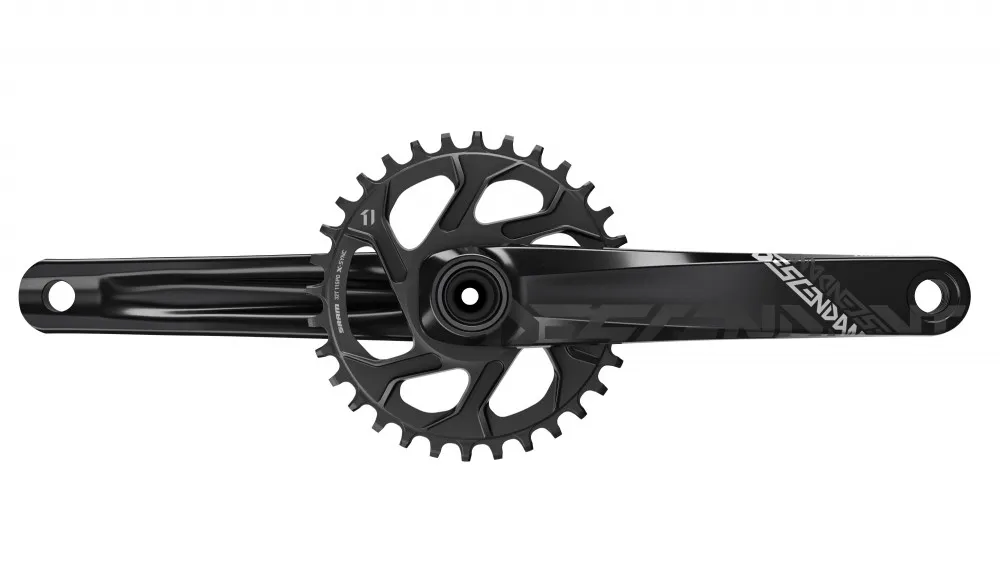
There are three options in the Descendant crankset range, starting with the trail- and enduro-focused aluminium Descendant. Using forged, non-hollow aluminium arms with a substantially different profile to that seen before on any of SRAM's kit, they use a direct mount chainring that's compatible with any 1x drivetrain to help reduce weight.
You can take your pick from 170mm or 175mm arm lengths as well as standard GXP 24mm spindles or oversize 30mm items. When compared to a Shimano XT M8000 36/26t double crankset that tips the scales at 717g (we don't yet have a weight for the single ring version), the claimed weight of 674g with a 32t ring looks competitive too. Price ranges are £134-158 and $161-188 , with Aussie pricing TBC at time of writing.
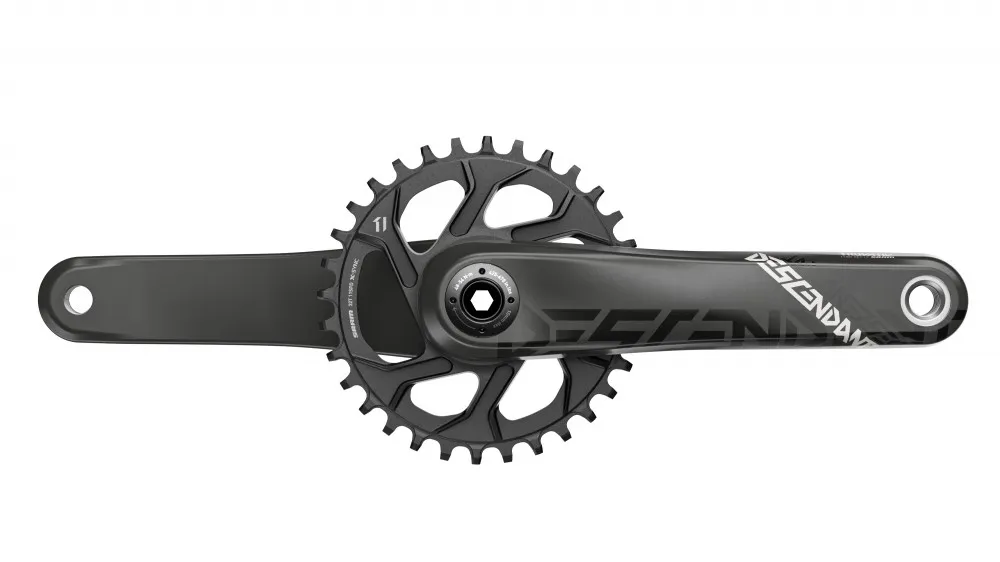
If you fancy dropping a bit more weight, then the Descendant Carbon crankset will be right up your street. It uses the same direct-mount chainring system paired with hollow composite arms, though it's only available in a 175mm length. SRAM says that it's the most affordable carbon crankset in the industry, and tipping the scales at a claimed 587g with a 32t ring it looks to be pretty impressive for the asking price of £262-286 / $311-340 / AU$ TBC.
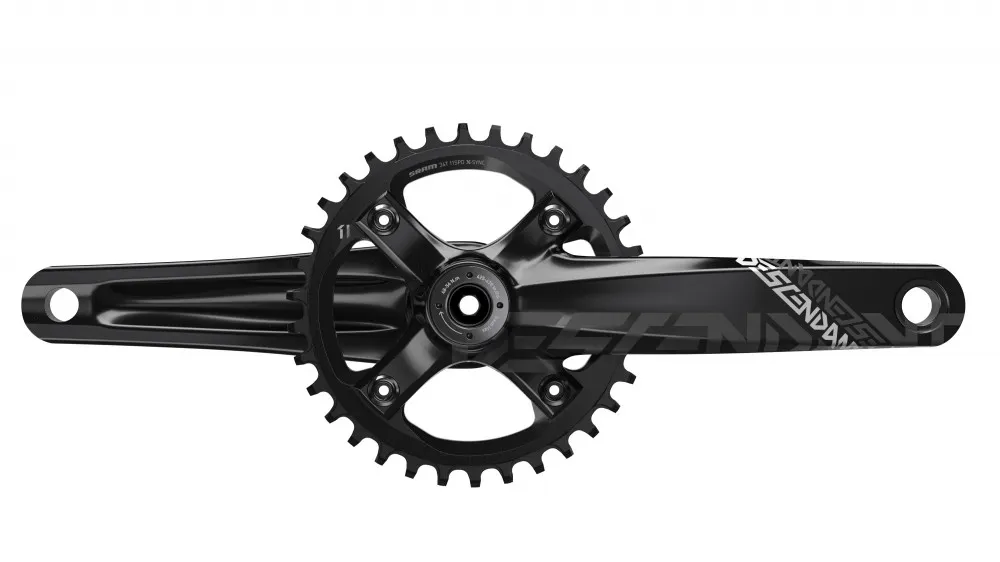
For pure gravity fans, the Descendant DH moves away from the direct mount ring for a conventional four-arm ring in a 94mm diameter. While it shares the same profile as the alloy Decendant, it comes in shorter length options with either 165mm or 170mm models in a 24mm or 30mm spindle. It's a touch weightier at a claimed 725g, though this is with a 34t ring. It costs £122-158 / $151-196 / AU$ TBC.
Descendant bars
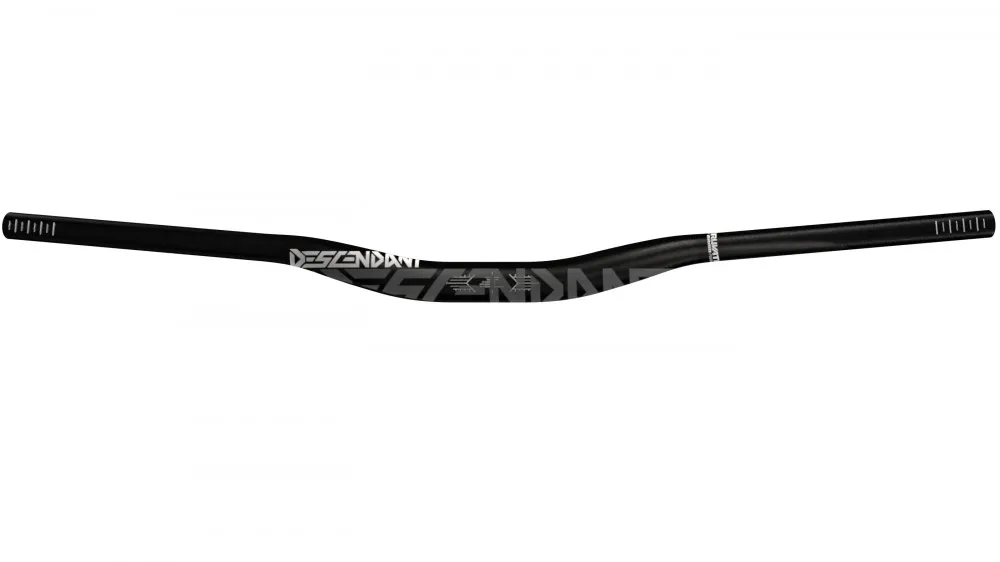
Truvativ was among the first to jump onto the wide-bar bandwagon with its 780mm wide Boobar, so it's unsurprising that it's got a full range here too. The Descendant Riser comes in a carbon or aluminium option, measuring 750mm and 760mm respectively. The shape is fairly similar to the current Jerome Clementz BlackBox bar with a 7-degree backsweep and 5-degree upsweep paired to a 20mm rise.
If you're a rider who needs a super low front end but doesn't want to compromise on width, then the Descendant Flat is, as the name suggests, completely flat with a 7-degree back sweep. Whichever rise you choose, the aluminium bar will cost £54 / $65 / AU$ TBC while the carbon model is £126 / $150 / AU$TBC.
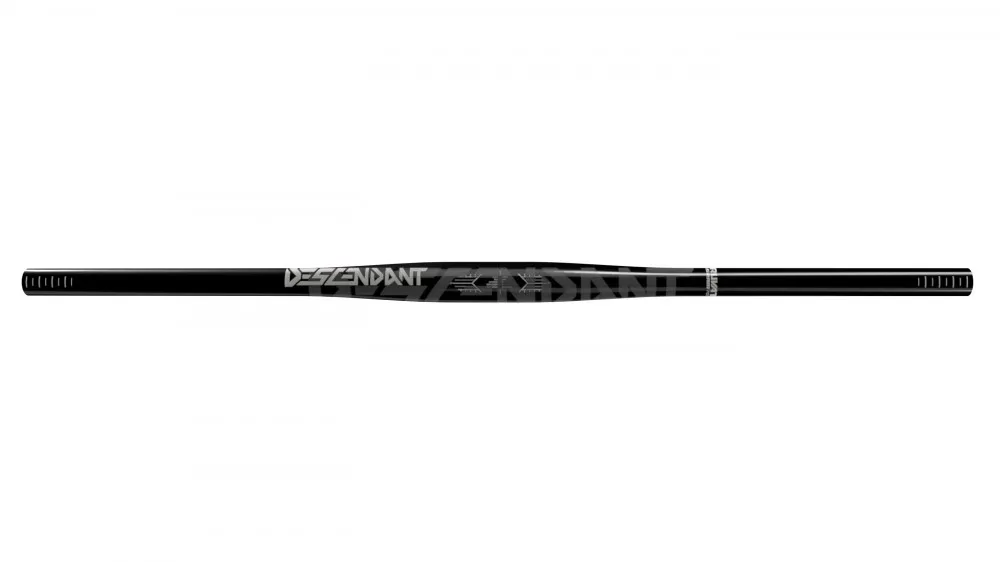
If 760mm seems a touch too narrow, the Descendant DH bar is a fairly mighty 800mm wide but also has a touch more rise at 25mm and am increased 9-degree backsweep. At £59 / $70 / AU$ TBC, we expect to see an awful lot of these on complete downhill bikes and with trail and enduro riders that like to go large.
Truvativ has no plans to introduce a 35mm clamp option on any its their bars at this point, saying that the 31.8mm standard still gives the best mix of stiffness and feel.
Descendant stem
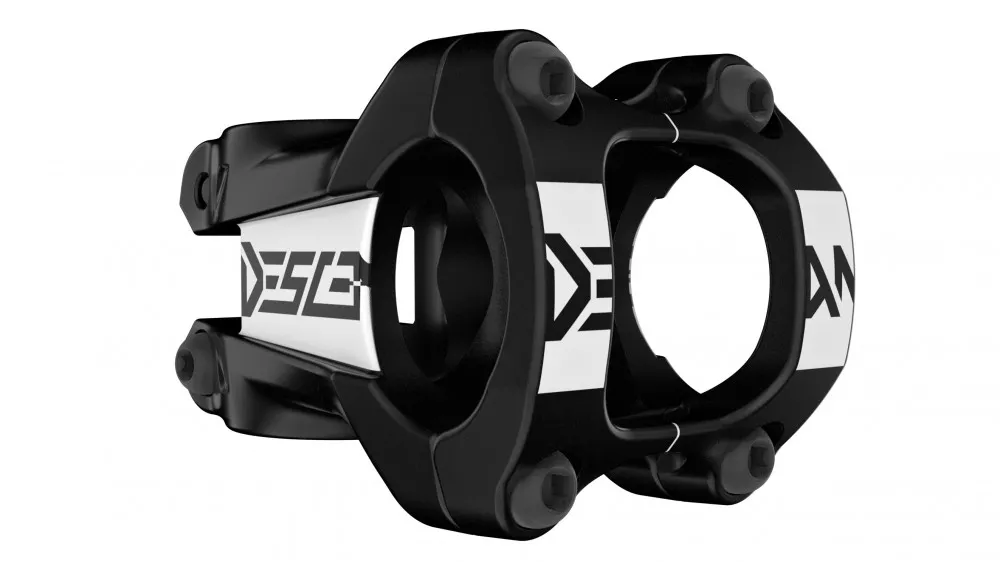
Unsurprisingly, the final piece of the Descendant cockpit puzzle is the stem. Made from 3D-forged 7050 alloy that's then machined to reduce weight, it's meant to be a sturdy all-rounder with four steel bolts in the cutaway faceplate and another two clamping the steerer. It's designed to sync up with Truvativ's bar range perfectly, featuring painted guides to help you centre and angle bars and stem correctly. It will come in a trio of lengths from 40mm to 60mm and at a claimed 149-168g, it's substantially lighter than either the old Holzfeller or Hussefelt stems it will replace. Price is set as £54 / $65 / AU$TBC.
Descendant post
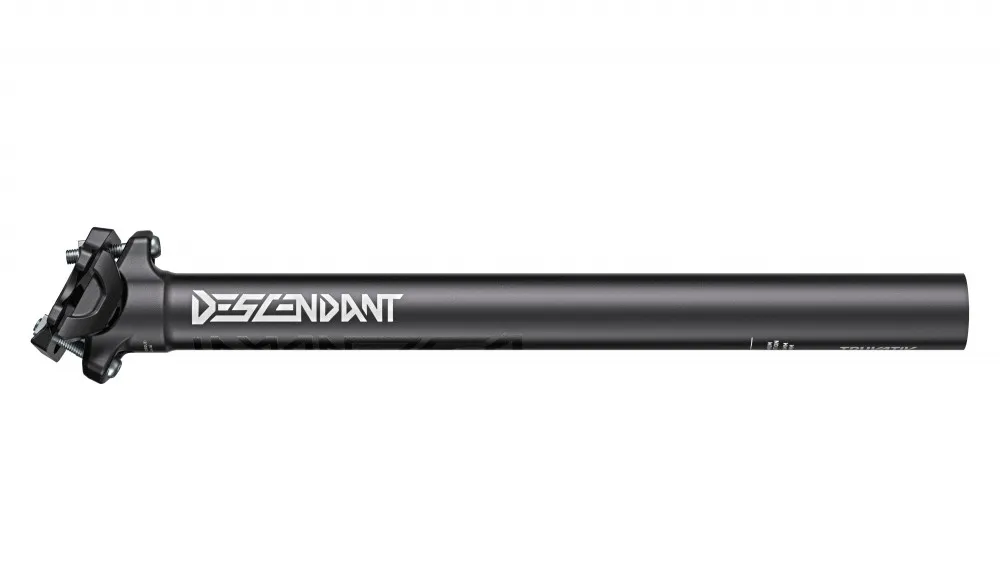
Releasing a fixed seatpost might seem like an odd move considering how ubiquitous dropper posts have become on all but the most affordable machinery, but Truvativ has spotted a gap that it aims to fill with the Descendant post. Many downhill bike designs use extremely slack seat tube angles, which can push many conventional posts to the limits of their adjustment range. To counter this, the head of the zero-offset post is canted forward heavily, giving plenty of options for even the most extreme machines. There's only one aluminium model available, though it comes in 350mm or 400m lengths and 30.9mm or 31.6mm diameters. It will set you back (poor pun intended) £42 / $50 /AU$ TBC.
All of the products have an expected on-sale date of June 2016 and we hope to get them in for test as soon as possible.
